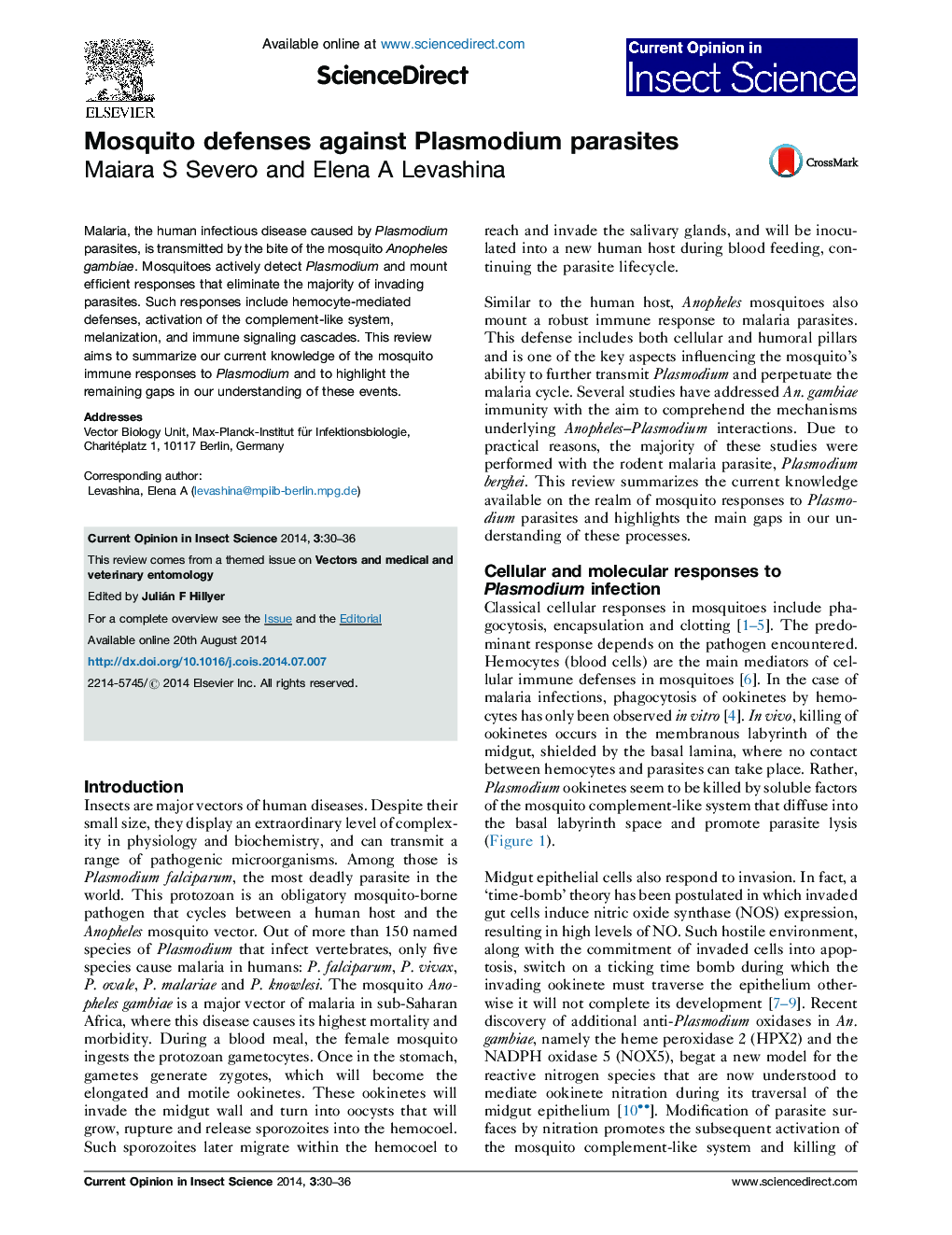| Article ID | Journal | Published Year | Pages | File Type |
|---|---|---|---|---|
| 4508273 | Current Opinion in Insect Science | 2014 | 7 Pages |
•Mosquitoes mount robust immune responses to malaria parasites.•Multiple signaling pathways (REL1, REL2, JAK/STAT and JNK) contribute to immune responses to Plasmodium.•Hemocytes secrete major anti-Plasmodium factors.•Melanization and complement-like cascades are activated during Plasmodium infection.•The efficiency of TEP1-mediated responses to Plasmodium varies with mosquito and parasite genetic backgrounds.
Malaria, the human infectious disease caused by Plasmodium parasites, is transmitted by the bite of the mosquito Anopheles gambiae. Mosquitoes actively detect Plasmodium and mount efficient responses that eliminate the majority of invading parasites. Such responses include hemocyte-mediated defenses, activation of the complement-like system, melanization, and immune signaling cascades. This review aims to summarize our current knowledge of the mosquito immune responses to Plasmodium and to highlight the remaining gaps in our understanding of these events.
